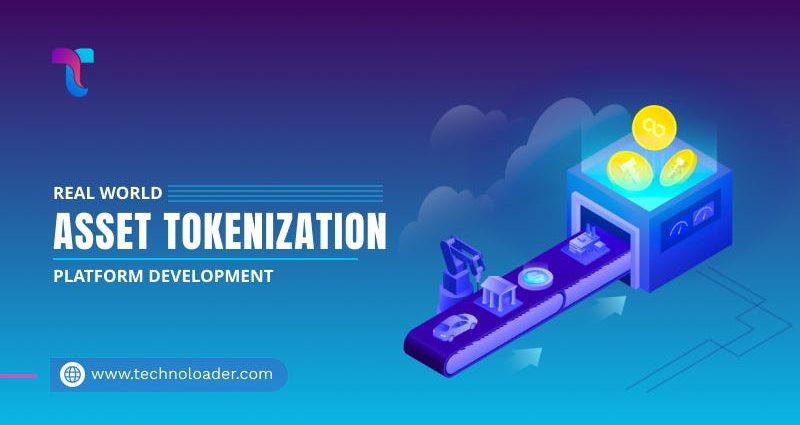In 2025, the financial landscape is undergoing a significant transformation with the rise of Real World Asset (RWA) tokenization.
According to a report by Cointelegraph, the market for tokenized assets is projected to reach $50 billion by the end of 2025 . This surge indicates a pivotal shift in how businesses manage and leverage their tangible assets.
But what exactly is driving this trend, and why should your business consider adopting a Real World Asset Tokenization Platform?
This article delves into the compelling reasons behind this movement and how it can benefit your enterprise.
Understanding Real World Asset Tokenization
Real World Asset Tokenization involves converting physical assets — such as real estate, commodities, or art — into digital tokens on a blockchain. These tokens represent ownership or a stake in the asset, enabling them to be bought, sold, or traded more efficiently. The process enhances liquidity, transparency, and accessibility in asset management.
Why Your Business Should Use a Real World Asset Tokenization Platform
1. Enhanced Liquidity
Traditional assets often suffer from illiquidity, making them challenging to trade quickly. Tokenization transforms these assets into digital tokens, facilitating easier and faster transactions. For instance, tokenizing real estate allows fractional ownership, enabling investors to buy and sell portions of a property without the need for full ownership.
2. Increased Market Accessibility
By breaking down high-value assets into smaller, more affordable tokens, businesses can attract a broader range of investors. This democratization opens up investment opportunities to individuals who might have been previously excluded due to high entry barriers.
3. Cost Efficiency
Tokenization reduces the need for intermediaries, such as brokers and banks, thereby lowering transaction costs. Additionally, the automation of processes through smart contracts minimizes administrative expenses and the potential for human error.
4. Transparency and Security
Blockchain technology ensures that all transactions are recorded on an immutable ledger, providing transparency and reducing the risk of fraud. This trustless environment enhances investor confidence and streamlines auditing processes.
5. Global Reach
Digital tokens can be traded across borders with ease, expanding the potential investor base and opening up international markets. This global accessibility can lead to increased demand and potentially higher valuations for tokenized assets.
Industries Benefiting from Asset Tokenization
Real Estate
The real estate sector stands to gain significantly from tokenization. By enabling fractional ownership, properties become more accessible to a wider pool of investors, enhancing liquidity in a traditionally illiquid market.
Commodities
Tokenizing commodities like gold or oil allows for more straightforward trading and ownership transfer, reducing the complexities associated with physical storage and logistics.
Art and Collectibles
High-value art pieces and collectibles can be tokenized to offer shared ownership, allowing art enthusiasts and investors to hold stakes in valuable items without the need for full ownership .
Steps to Implement a Real World Asset Tokenization Platform
- Asset Evaluation: Determine which assets are suitable for tokenization based on their value, demand, and regulatory considerations.
- Legal Compliance: Ensure adherence to relevant regulations and obtain necessary approvals to tokenize and trade the asset legally.
- Platform Development: Collaborate with a reputable Real World Asset Tokenization Platform development company to create a secure and user-friendly platform.
- Token Creation: Develop digital tokens representing the asset, incorporating features like fractional ownership and smart contracts for automated processes.
- Investor Outreach: Market the tokenized assets to potential investors, highlighting the benefits and opportunities they present.
Conclusion
The tokenization of real-world assets is not just a fleeting trend but a substantial shift in asset management and investment strategies.
By adopting a Real World Asset Tokenization Platform, businesses can unlock new opportunities, enhance liquidity, and stay ahead in the evolving financial landscape.
Partnering with an experienced development company like Technoloader can ensure a seamless and compliant transition into this innovative space.
Frequently Asked Questions
Q. What is a Real World Asset Tokenization Platform?
It’s a blockchain-based system that converts physical assets into digital tokens, facilitating easier trading and ownership transfer.
Q. How does tokenization improve asset liquidity?
By representing assets as digital tokens, they can be divided into smaller units and traded more freely, enhancing market liquidity.
Q. Are there regulatory challenges in asset tokenization?
Yes, navigating the legal landscape is crucial, as regulations vary by jurisdiction and asset type.
Q. Can any asset be tokenized?
While many assets can be tokenized, factors like market demand, legal considerations, and asset nature determine suitability.
Q. How do I choose the right development company for tokenization?
Look for a company with expertise in blockchain technology, a strong track record, and a deep understanding of regulatory compliance, such as Technoloader.




